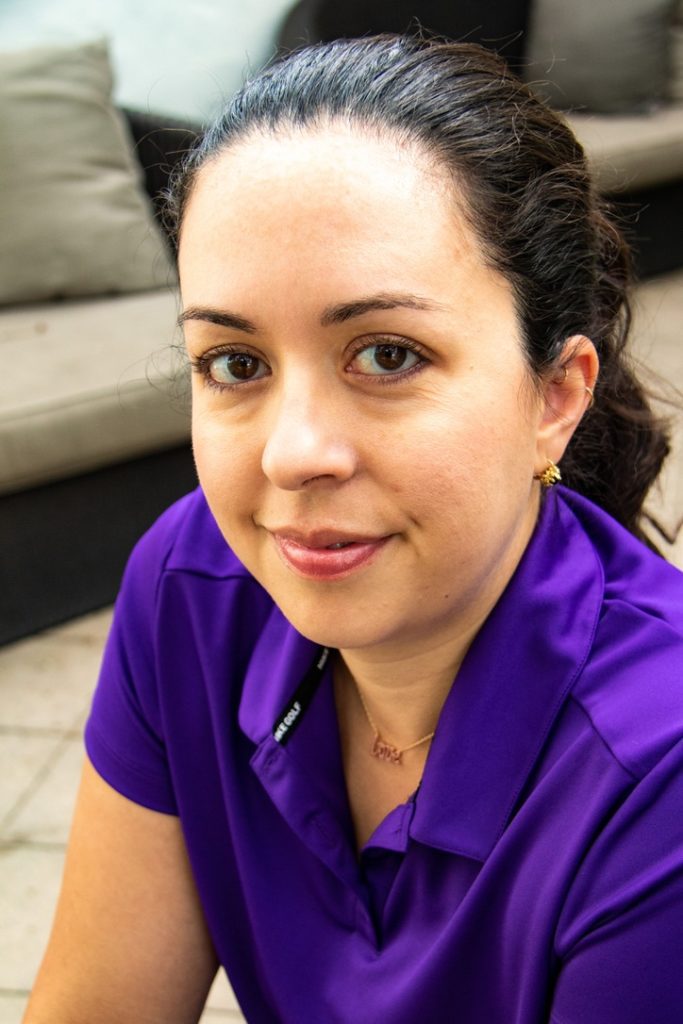This week’s Meet a Mom interview is with Dr. Corinna Franklin, MD, AB, FAOA, chief of pediatric orthopedics at Yale School of Medicine. She has been an orthopedic surgeon for almost 11 years, with a focus on female pediatric and adolescent athletes. She sees patients at Yale New Haven Children’s Hospital’s Pediatric Specialty Centers in New Haven, North Haven, Trumbull and Old Saybrook, and lives in Hamden with her family, including a daughter, 6.
We spoke to Dr. Franklin about her practice, tips for keeping kids healthy while playing sports, and more.
How did you choose your specialty?
I just really like working with children and teenagers—it’s a fun age group. They are very determined to get better and recover quickly. Young people want to get back on the field.
In terms of female athletes, there aren’t a lot of female surgeons in my field, and it can be nice for them to speak to another woman about things you might not think impact their orthopaedic health, including menstrual cycles, body image and even sports bras.
That’s so interesting. What are the biggest differences in treating pediatric and adult patients?
Kids have growing bones which always them to heal faster, but your options for surgery are different because you can’t interfere with the growth plate. So it can be technically more demanding. Also, kids are not tiny adults. They don’t have the same capacity before puberty to build heavy muscle and they don’t have the same balance and coordination that adults do. When you think of a 12-year-old pitcher versus an adult pitcher it’s very different. They can’t sustain the same training load. You also have to make room for school when you’re thinking about rehab, or training to prevent injury.
What issues do you see in young girls specifically?
Girls in particular are more susceptible to ACL injuries than boys, starting in puberty. When you see how many elite female athletes missed the World Cup due to ACL injury, that’s clear.
Also, girls and young women participate in sports like dance, cheer, distance running. RED-S, or Relative Energy Deficiency in Sport, is a pattern where athletes aren’t taking in enough calories to support the work they’re doing, leading to stress fractures, electrolyte imbalances and more. Sports like these that require a certain slim body shape can have a higher incidence of RED-S, although it is not always obvious.
There are also mental health repercussions if you are trying to stay a certain size but not getting enough carbs or protein. A lot of that falls on coaches to promote a healthy environment. Before your child joins a team, you can meet the coaches to get a sense of the team culture.
What are the best ways you advise your patients (male and female) to avoid injury and longer term issues?
Strength and conditioning are important in every sport, even for younger athletes. Flexibility is very important, and core and hip strength in particular will protect the body from injury. Also, young athletes need good nutrition, rest and time off the field.
Do you think kids are specializing too early in sports?
100 percent! There are so many avenues to train more, and pressures on these kids to advance. The fact of the matter is that many of the best athletes were multi-sport athletes, like Patrick Mahomes. They do not have to play the same sport year-round. It puts kids at risk of burnout, overuse injuries, and they need to enjoy it. I respect that there is so much pressure, but it is important to take that season off and put stress on a different part of the body. If you’re a star athlete it can also be really helpful to have a season when you’re not a star, and don’t have to perform and take it so seriously.
To learn more and book an appointment with Dr. Franklin, click here.

